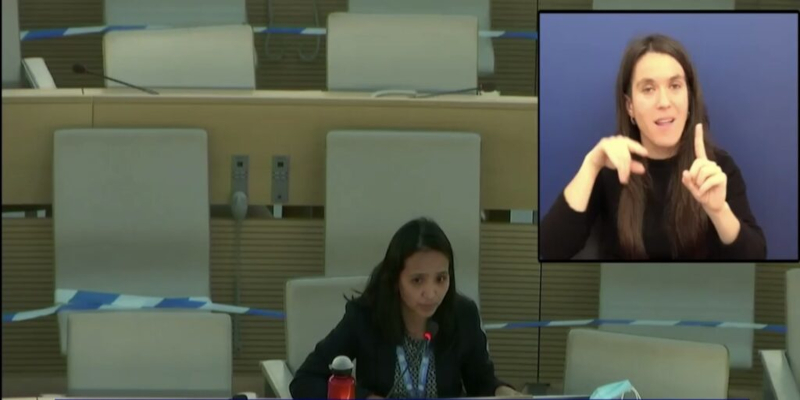Dharamshala, 6th December: At the 14th Session of the UN Forum on Minority Issues in Geneva, the Tibet Bureau urged China to address Tibetans’ underlying grievances by respecting Tibetan people’s historical, social, and cultural roots. Tibetan people are suffering the results of China’s imposition of social structural and demographic change, said Advocacy Officer Kalden Tsomo, speaking at the UN Forum on Minority Issues.
Tsomo was quoted by the Central Tibetan Administration as saying, “Lack of opportunity to acquire knowledge on Tibetan history, culture, and traditions; and lack of employment opportunities in Tibet have led to a cycle of conflicts and protests, including self-immolation protests by over 155 Tibetans in Tibet.”
From December 2-3, the United Nations Forum on Minority Issues was held in a hybrid style. The focus of the event was on the core causes of current conflicts affecting minorities, as well as legal and institutional frameworks.
Tsomo stated that all remaining Tibetan medium schools, as well as informal Tibetan language sessions, have been closed by the Chinese authorities. She also brought up the recent deconstruction of the Drago Monastery school in the Tibetan region of Kardze.
Tsomo states that a state-sponsored flood of Chinese into Tibetan communities is increasingly dictating job markets, leaving native Tibetan college graduates with no career prospects.
According to the Central Tibetan Administration, she also emphasized the survival of Tibetan people, their culture, language, and identity, which are all under threat from Beijing’s ever-increasing attempt to “Sinicize” every part of Tibetan people’s way of life.
China’s exploitation of Tibet’s resources:
China’s determination to dominate and exploit Tibet has gone too far, as it has carried out a slew of projects that have wreaked havoc on not just the Tibetan plateau’s fragile ecology but have also put the entire continent of Asia in jeopardy. The Tibetan Plateau, living under the forcible occupation of China since 1951, is the world’s highest and most extensive alpine area which has come to be known as the ‘Third Pole’ for being the home to the largest bulk of freshwater snow and ice after the North and South poles.







Leave a Reply